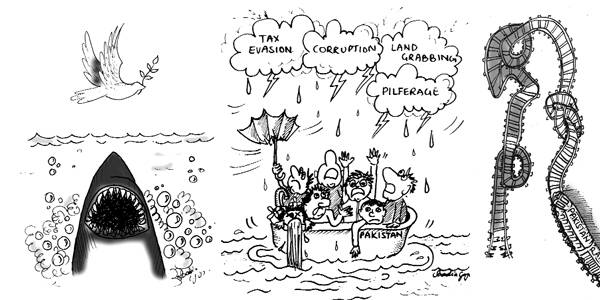
Realpolitik
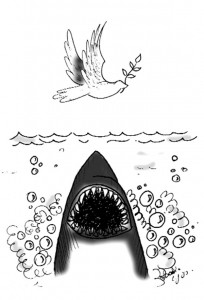
Sir,
This is a response to the undue criticism by certain quarters, including some self-styled defense analysts, of the bold decision by Prime Minister Nawaz Sharif to visit India to participate in the swearing-in ceremony of India’s new prime minister Narindra Modi.
Continued tensions between India and Pakistan, both nuclear countries, are undesirable, and sanity demands that effective steps should be taken by responsible leaders to diffuse those tensions. A state of continued threats is beneficial only to armament and security contractors, who stand to benefit financially, to the detriment of vast majority of people, whose welfare cannot be undertaken because of paucity of funds. It is a strange coincidence that family members of these contractors and bulk of their assets are abroad.
War has never benefited any country and as far as Pakistan Army is concerned, it is their stated position that peace is their priority and they want to have defense capability to thwart any evil designs and adventurism from across the border, or an insurgency aiming to destabilize Pakistan.
These retired officers on television must exercise restraint when dealing with sensitive matters like India-Pakistan relations. Have they forgotten that even a dictator like Ziaul Haq was forced by events and ground realities to embark on an uninvited trip to India for diffusing tensions and so did Pervez Musharraf when he chose to go out of way to shake hands with Indian prime minister Bajpayee in Kathmandu.
It is in national interest of Pakistan to have peace on our Eastern borders, so that we may focus on winning the war against terrorism from within this country and embark on diplomatic offensive to cut off their supply lines.
Zahid Shah,
Lahore.
Conflict of interest – I
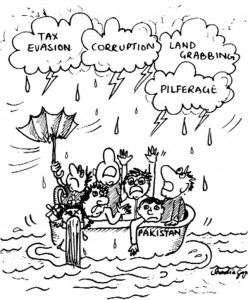
Sir,
Islam emphasizes importance of ethics, morals, justice and equality for all, mandating our rulers to lead by example and ensure supremacy of law. It stresses learning from others, even your enemies. Principles like accountability, equality and justice are enshrined in our religion, yet nobody cares to follow them.
Israel, a country illegally occupying Palestinian lands, is not recognized by Pakistan, yet the fact remains that these two states were created on basis of religion. In April 2014, Tel Aviv District Court Judge David Rosen convicted former prime minister Ehud Olmert, for “acute conflict of interest” during his tenure as Mayor Jerusalem in 1999 by helping a land developer receive municipality licenses for Holyland Park residential project. The Judge stated: “Public servants who accept bribes is akin to traitors” because they cause public to lose faith in government. Olmert was also accused for sale and lease back of a Jersualem property on financial terms favorable to him, apart from receiving election campaign fundings from American Jewish lobby that he failed to declare. Olmert is serving a 6 year jail term starting from 28 April 2014, apart from a two year suspended sentence and a $400,000 fine.
Compare this to abuses of power by our ruling elite and servants of the state. Controversial land developers wield political influence because they offer ‘gifts’ to those at the helm. Politicians buy land from poor land owners based on insider-information and make billions of rupees. Yet this does not constitute conflict of interest in Pakistan. Government land is leased out for commercial purposes below the prevailing market value, yet nobody gets caught. Pakistan Railways continues to buy engines from same Chinese manufacturer of ill-repute, while cost of New Islamabad Airport has tripled for some reason. Yet this does not constitute a financial irregularity
Tariq Ali,
Lahore.
Conflict of interest – II
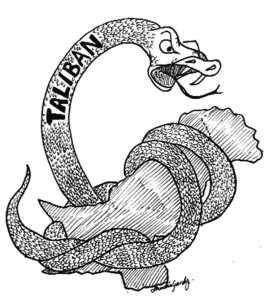
Sir,
Three years have elapsed since attack on Pakistan Navy’s Air Arm at Mehran Base carried out by Taliban terrorists, leaving 18 military personnel martyred and over 16 injured. It was a planned and sophisticated operation and caused the highest loss of assets to Pakistan Navy since the 1971 war, seriously denting our capability to defend our long sea shores with loss of expensive P-3C Orion aircraft.
Such an operation could only have been carried out by our enemies under guise of religious outfits, exploiting and recruiting simple citizens to weaken our capacity to defend this country. It is the weaknesses within our system, created by rampant corruption with no fear of any accountability, that have allowed terrorists to sneak in and sophisticated weapons to be supplied to them from across our borders, or smuggled through our coast line and airports. Reports by eye witnesses printed in the media stated that some of these terrorists were dressed in Navy uniforms, and were familiar with security protocol requirements. It is also an unfortunate reality that the security of not only Mehran Base, but other aircraft parked at PAF Drigh Road Base, stood compromised when what was required to be a sterile zone, inaccessible to public and totally barricaded from all sides, allowed commercial wedding halls and lawns to be constructed in its periphery.
With change in command by professional soldiers of repute, whose family can be proud of having sons like Major Shabbir Sharif Shaheed, it is hoped that we honor 18 valiant sons of this country who laid down their lives on 22 May 2011, by ensuring that no commercial residential societies, marriage halls or markets will ever be allowed within the periphery of, or in vicinity of, our defense establishments or civil airports, under the garb of welfare projects. And those that already exist must be dismantled.
The security of Pakistan and its defense assets, and the lives of our valiant soldiers, is far more important than commercial interests of a select few.
Ali Malik,
Lahore.
Extremism in India
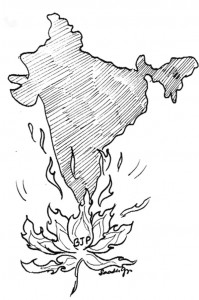
Sir,
Besides the largest number of external conflicts in the world, India also has the highest number of internal conflicts in the world. Ethno-religious fault lines play a predominant role in home-grown violence in India. The internal conflicts include separatist insurgencies plaguing the country since 1947. An estimated 30 armed insurgencies sweep across India, reflecting an acute sense of alienation of the people involved and sustained mainly by failure to attend to their grievances and human rights violations by the government. There are over 200 armed irregular guerilla groups of which 68 are major terrorist outfits. About 34 armed groups are active in the state of Manipur.
Many of Indian armed groups are home-grown Hindu terrorist organizations. It is another matter that India often propagates against the freedom struggle in Kashmir but mostly sweeps under the carpet the structure and activities of Hindu terror organizations based on the reglio-political motivation.
India has proscribed some 36 armed groups. According to the Jamestown Organization (June 4, 2010), there are 100 more terrorist groups worth proscription. India considered such a case but subsequently deferred it due to the fear of being named a terror ground zero. Instead, it issued a ban list on 100 terror outfits from across the globe, which had no base in India itself.
Separatism or independence from India is the key motivation for internal conflicts in most of the cases. The seven north-eastern states, also referred to as the Seven Sisters, to include Arunachal Pradesh, Assam, Nagaland, Meghalaya, Manipur, Tripura and Mizoram have the powerful separatist movements spearheaded by some of the most violent armed groups, guided by sub-nationalist political organizations. Some of them also have governments in exile. A number of Sikh organizations are keeping the case of independent Khalistan alive both at home and abroad.
Separatist and autonomist movements exist in several other Indian states, too. The most powerful and fiercest is the 47 years old Maoist-Naxalite insurgency. Taking root in 1967 in the Naxalbari village of West Bengal, it spread across India. According to Global Research, a Centre for Research on Globalization (December 20, 2013), “Since then, the insurgency has spread like wildfire over 40% of India’s land area, encompassing 20 of the country’s 28 states, including 223 districts (up from 55 in 2003) out of a total of 640. The seven most affected Indian states in terms of fatalities are Chattisgarh, Jharkhand, West Bengal, Maharashtra, Orissa, Bihar, and Andhra Pradesh, in that order. These regions comprise the ‘Red Corridor’. About 10,000 people have been killed in the expanding civil war since 1980. The Maoists wield about 20,000 armed fighters and another 50,000 supporters. The Indian government complains that the insurgency has crippled economic activity in Central and Eastern India.” The outgoing Indian Prime Minister Manmohan Singh termed the Naxilite insurgency as “the single biggest internal security challenge ever faced by India.”
It is of note that Sangh Parivar is chiefly responsible for Hindu extremism in addition to violence against the non-Hindu communities in India. Driven by the ideology of Hindutva, the Sangh Parivar has to have a clear predisposition. That the Parivar is back to the throne of Delhi as a result of 2014-election victory is neither a coincidence nor a political swap over. It bears evidence of a complete politico-ideological metamorphosis of the Indian society thereby pointing to the death of secularism.
Their track record is clear. Juhapura with a population of 400,000, located in the New West Zone of Ahmedabad in Gujarat, received the brunt in 2002, when over 2,000 Muslims were killed under the chief ministership of Narendra Modi, is reported to be in a state of shock. His followers mockingly call Juhapura the “Little Pakistan.” Alongside Muslims of Gujarat and other states of India, the Scheduled Castes, the Scheduled Tribes, the marginalized Christian communities of the northeast and the Muslims of the Kashmir are feared to endure added wrath of the Hindutva forces, and thus the internal conflicts would continue to burden in the Sangh polity.
Ehsan Mehmood Khan,
Rawalpindi.
Off track
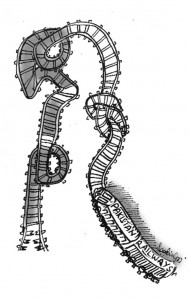
Sir,
After completing the metro bus service in Lahore, the Punjab government has now signed a contract with China to build a metro train in Lahore. Of course as a Lahori I feel proud that my city will have a transport facility that no other city in Pakistan has, but since I live in rural Sindh at the moment, I have second thoughts.
Shahbaz Sharif has been criticized by many people that for only developing Lahore while the rest of the Punjab is being left out. Being the chief minister of Punjab, he should have prepared a project from which the whole province could have benefited.
The entire railway network of the country is in shambles. It is very sad to see abandoned railway lines all over the country. So if he wanted to do something for the railway, he should have thought about the development of the railway network of the entire province.
Abid Habib,
Mirpurkhas.
Give peace a chance
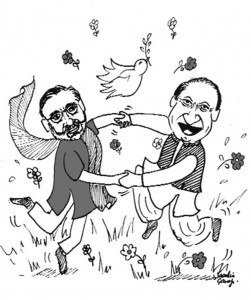
Sir,
The decision by Prime Minister Nawaz Sharif to accept the invitation to the oath taking ceremony of Narendra Modi is a wise, mature step, worthy of a statesman who has always declared that economic progress cannot be achieved nor poverty curtailed unless peaceful coexistence is established with all other countries in the region.
It has always been the professed policy of Pakistan that it espouses no offensive designs in the region and its military strategy is based on the defense of our territorial integrity. Both India and Pakistan maintain huge armies, spending a large portion of their GDP on defense, whilst millions of their citizens live below poverty line, devoid of basic human necessities, with illiteracy making our human resources a burden instead of an asset. Our religion Islam stresses maintaining peace, resorting to war only as a last option if it is thrust on you. US President John F Kennedy said: “Let us never negotiate out of fear, But let us never fear to negotiate”. He also stated that “Mankind must put an end to war or war will put an end to mankind”.
The ground reality is that both India and Pakistan posses nuclear arsenals, enough for assured mutual destruction. War is therefore not an option for the two neighbors. The insane elements, beating war drums on both sides of the border, need to be given doses of sanity, or confined to their own quarters, not given undue coverage by an irresponsible media. There is almost a unanimity of opinion among the established political parties in Pakistan that we must have friendly relations with India. It is also a sad reality that continued tensions reap a bonanza for vested interests, while depriving over a billion people of much needed funds for welfare, development of human resources, provision of basic health and clean drinking water. Media in both countries must restrain from sensationalism, failing which the state must intervene.
Modi has been elected by people of India, and Pakistan has to deal with him. Geographical neighbors cannot be changed, and we need to strive for better relations. However India must reciprocate and assume its role in accordance with declared international norms, morals and ethics, and respect the sanctity of international borders. Similarly Pakistan must reciprocate and try to address whatever we need to do to restore tranquility.
Abid Kaleem,
Islamabad.

